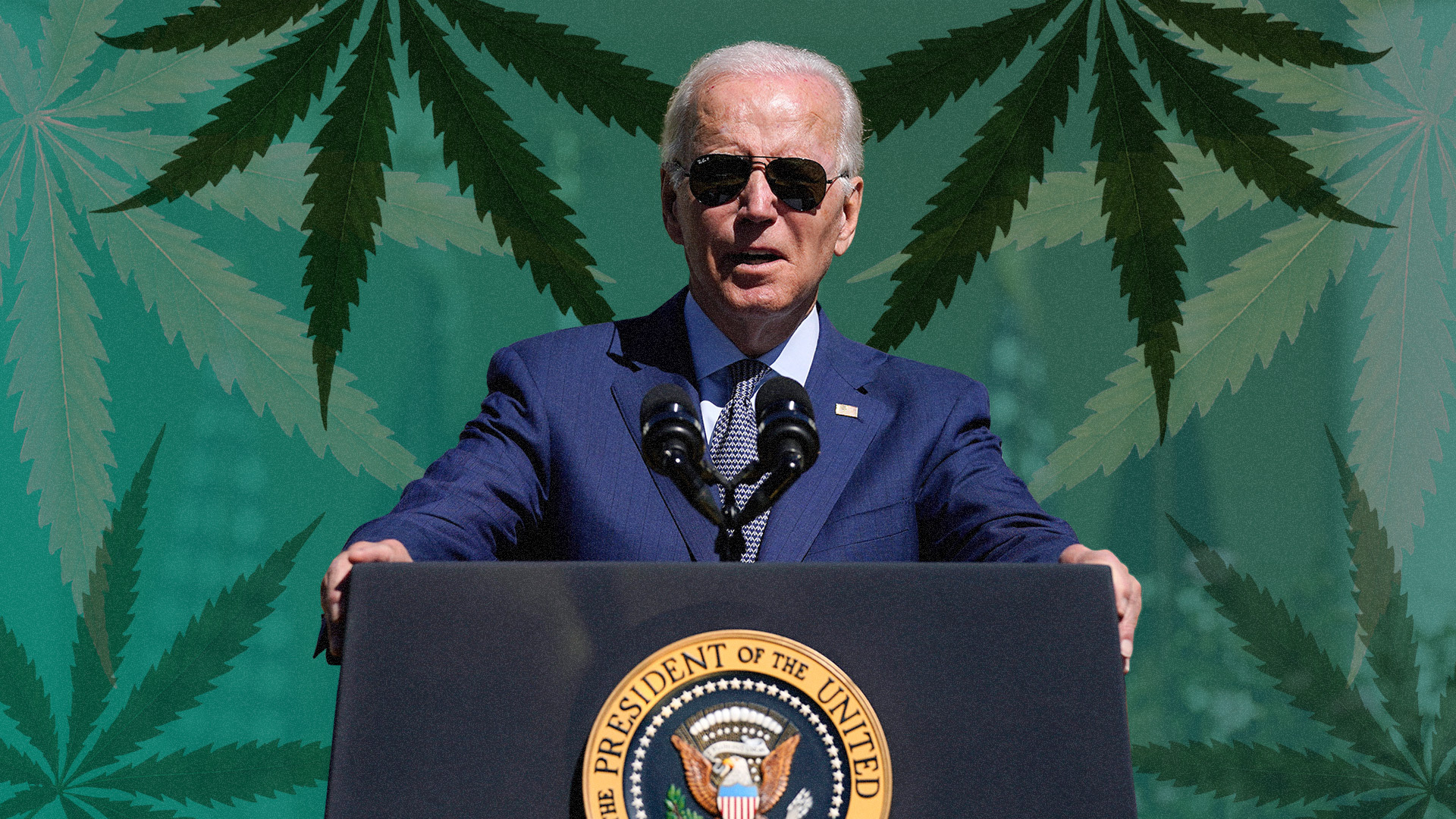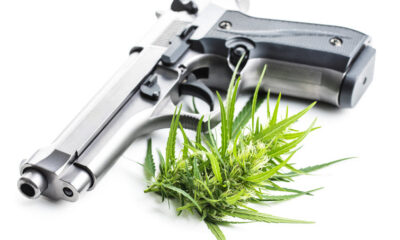The federal war on marijuana has entered the end game.
today, the US Drug Enforcement Administration (DEA) officially moved to re-categorize marijauna as having medical use and a low potential for abuse.
For the first time since 1971, the US federal government is seeking to end cannabis’s designation as a “Schedule I” controlled substance—equivalent to drugs like heroin and PCP. Instead, the US intends to consider marijuana a Schedule III substance—on the same level as codeine.
The Associated Press appears to be the first to report the news, with it being picked up by Marijuana Moment.
Legalization polls in the 70s, and medical legalization polls in the 90s. Cannabis champion and congressman Earl Blumenauer (D-OR) stated in an email:
“If today’s reporting proves true, we will be one step closer to ending the failed war on drugs. Marijuana was scheduled more than 50 years ago based on stigma, not science. The American people have made clear in state after state that cannabis legalization is inevitable. The Biden-Harris Administration is listening.”
The rescheduling follows a request that President Biden made to US Health and Human Services Secretary Xavier Becerra in October 2022 to review the scheduling of marijuana under federal law. (Biden had simultaneously issued pardons for federal prisoners convicted on marijuana charges.)
In January, activists learned the US Dept. of Health and Human Services had recommended to the DEA that marijuana move to Schedule III.
The re-scheduling move carries immense consequences, from research opportunities to tax code reform for cannabis businesses. Yet it’s far from a silver bullet: On its own, rescheduling does not decriminalize or legalize cannabis; nor does it facilitate interstate commerce for the industry.
Read on to learn more about the significance of cannabis rescheduling, what it accomplishes, and what it leaves unsolved.
Related
President Biden to pardon federal marijuana prisoners and start rescheduling process
What was so bad about Schedule 1?
Marijuana’s Schedule I has proved catastrophic over the decades. In 1971, with a hefty push from the hardcore prohibitionist President Richard Nixon, the DEA added cannabis to the nascent list of Schedule 1 Controlled Substances. Authorities deemed it to have no medical value, and high potential for abuse. Schedule 1 drugs include heroin, cocaine, and quaaludes.
Shop highly rated dispensaries near you
Showing you dispensaries near
Police arrested millions of Americans for marijuana since 1971. Drug arrests became the No. 1 type of arrest police made, and pot became the No. 1 type of drug arrest. You could lose your children, housing, education, job, and more under the Schedule I designation.
Also, scientists could not study cannabis easily. Furthermore, a drug’s Schedule 1 status prevents its legalization; even today, states that allow for recreational or medical marijuana sales are technically in violation of federal law.

What will Schedule III change?
Cannabis’ new classification puts it on par with ketamine, Tylenol with codeine, and testosterone.
According to the DEA’s own definition, Schedule III substances present “a moderate to low potential for physical and psychological dependence.” Cannabis’ new classification puts it on par with ketamine, Tylenol with codeine, and testosterone.
One of the most potentially consequential impacts of rescheduling is also one of the wonkiest: Thanks to a line in federal tax code referred to as 280e, cannabis businesses pay crippling taxes, sometimes upwards of 65-75%. It also prevents businesses from deducting many of their expenses from their taxes. Thanks to rescheduling, the 280e policy will no longer apply; it could open the door to new growth and investment.
As a Schedule III substance, scientists will have easier access to researching cannabis as well. Furthermore, as Marijuana Moment points out, rescheduling could loosen restrictions around federal employees consuming cannabis.
Related
Pennsylvania’s Fetterman has smoke for Biden over weed reform
What does rescheduling leave unfixed?
In short, rescheduling cannabis to Schedule III is just a step toward full legalization. It does not decriminalize personal possession in prohibition states like Texas, nor does it facilitate interstate commerce.
“It is a rather modest step given the strong support among American voters for comprehensive cannabis reform,” said Matthew Schweich, executive director of the Marijuana Policy Project, the nation’s leading cannabis policy reform organization.
What’s next?
The DEA’s recommendation for rescheduling now goes up for public comment—likely for several months through the General Election on Nov. 4. President Biden will likely campaign on promises kept. One poll shows the incumbent President receiving an 11 percentage-point bump in voter approval for rescheduling. Medical marijuana polls at 90% approval, while Gallup has legalization polling at 70%.
The rescheduling news offers the chance to increase pressure for bigger change as well, said longtime cannabis tax expert Henry Wykowski. He heads to Washington DC in May to lobby for reform, and said this provides ammo.
“This is good opportunity to keep the pressure up to make sure they really do follow through on it this time,” said Wykowski.
Experts react to the news
Experts applauded the DEA’s rescheduling move, and looked back on the hard-fought win.
Brian Vicente helped lead America into legalization from Colorado and is the founding partner of national cannabis law firm Vicente LLP, which has been actively engaged in the Coalition for Cannabis Scheduling Reform. He said the move is a big effing deal.
We have entered a new era of dialogue and policy around this historically maligned plant.”
Brian Vicente, Vicente LLP, Colorado
“This is a remarkable about-face by the DEA, which spent decades denying the true medical value of the cannabis plant. While a strong case can be made for removing cannabis from the federal drug schedules entirely, rescheduling marks a huge step forward for commonsense cannabis policy in our country. This action will have massive impacts, both practically for the cannabis industry and symbolically for the reform movement. We have entered a new era of dialogue and policy around this historically maligned plant.”
Shawn Hauser, partner at Vicente LLP who closely follows the federal scheduling process called ther move, “likely the best outcome possible, given the realities of the federal administrative review process. This historic action by the Biden administration has the potential to embolden Congress to finally pass legislation that federally legalizes and regulates cannabis for medical and adult use.”
The top cannabis tax attorney Wykowski affirmed rescheduling offers relief to embattled cannabis licensees. Their taxes would go down. They would be able to take business deductions for the first time.
“[The tax code section 280E] been a terrible, unfair burden on the whole licensed industry—people who are really trying to comply with the law. It favored people in the illicit market who continued to sell without being licensed, regulated, tested, or taxed.”











































